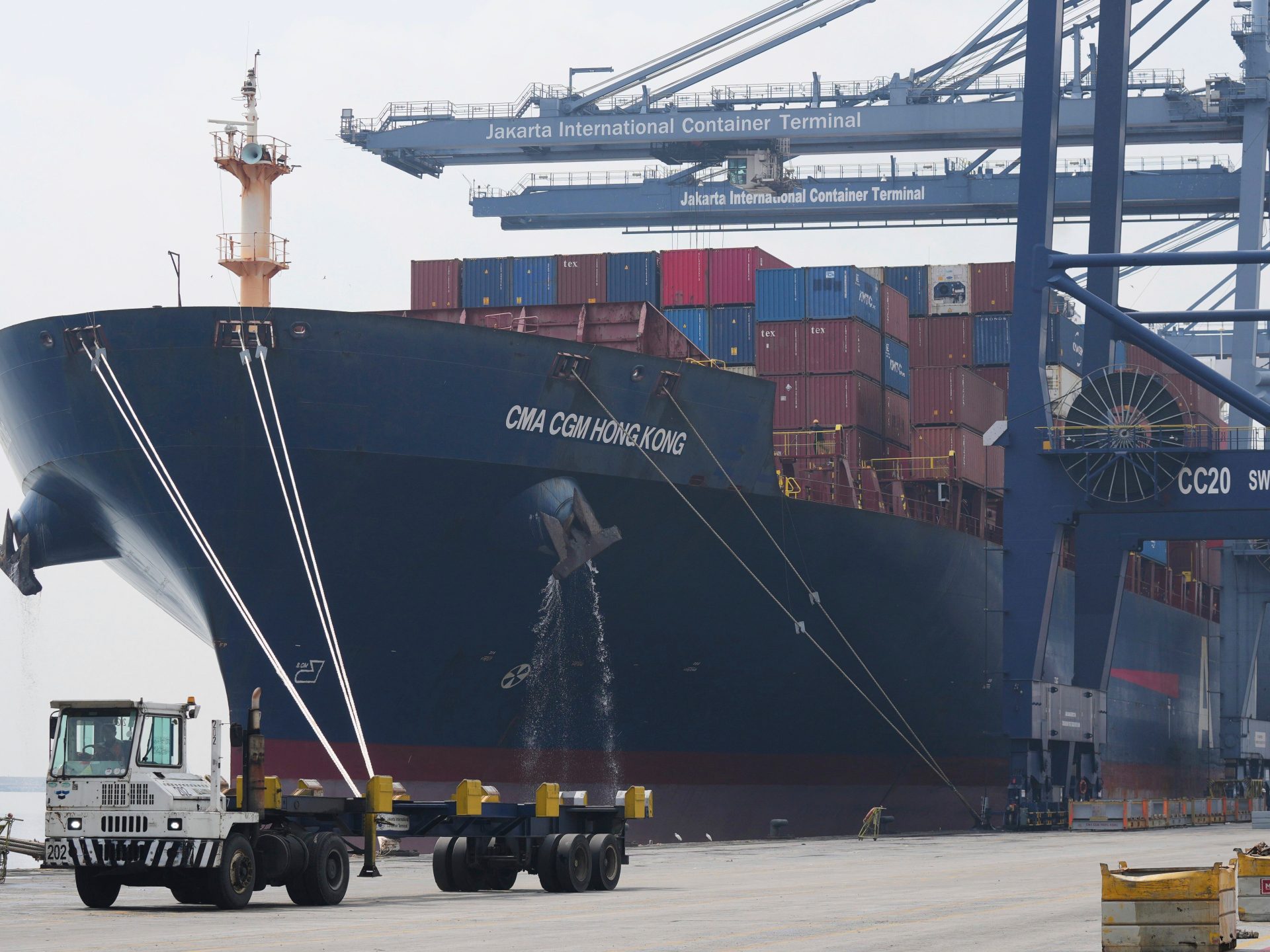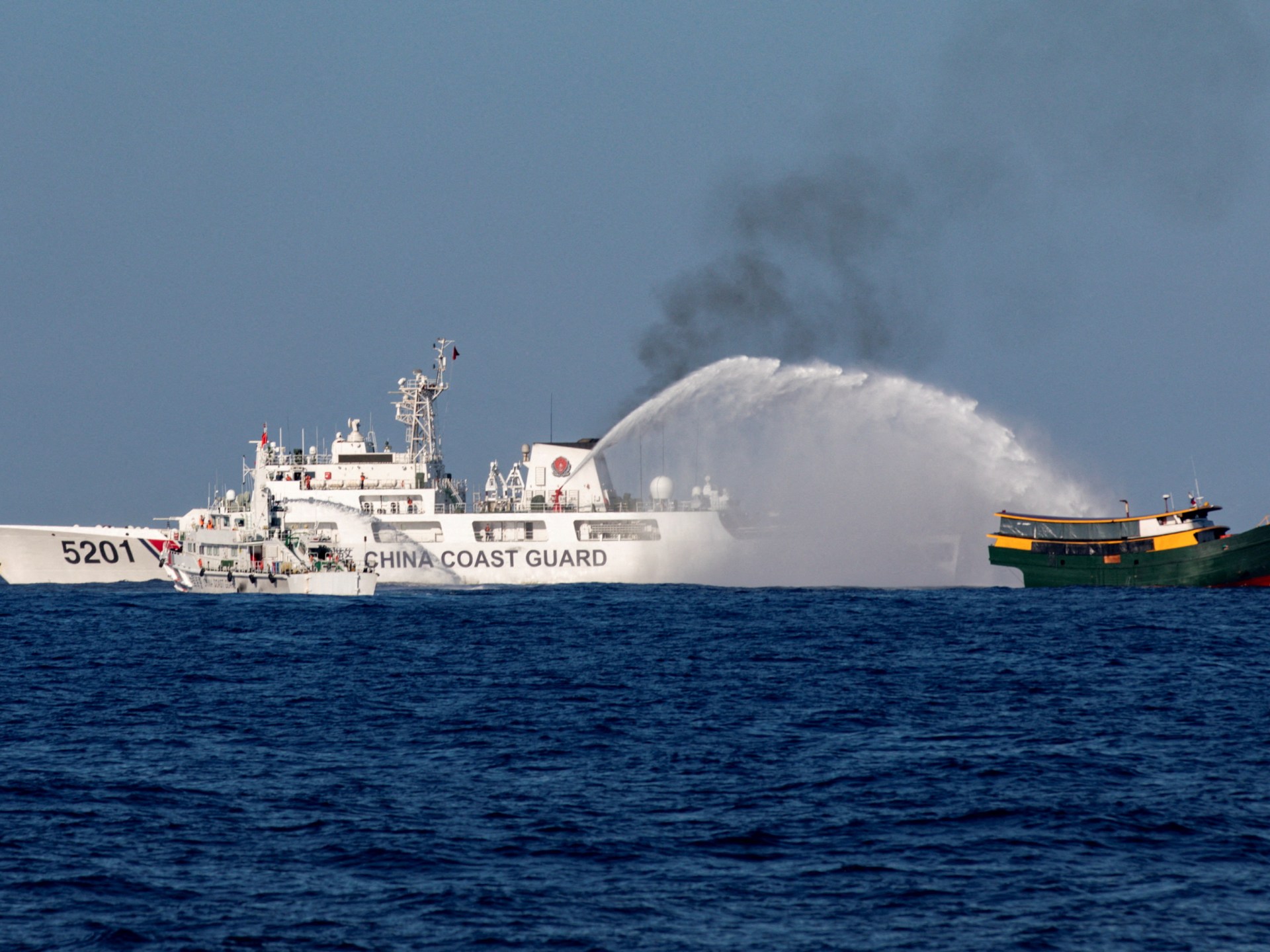Manila, Philippines – When former Philippines President Rodrigo Duterte was arrested by the International Criminal Court (ICC) in March, Sheerah Escuerdo spoke to a local television station, welcoming the politician’s detention on charges of murder linked to his war on drugs.
Escuerdo, who lost her 18-year-old brother, Ephraim, to Duterte’s war, clutched a portrait of her sibling during the interview with News 5 Everywhere as she demanded justice for his killing.
Days later, she was shocked to find an AI-generated video of her slain brother circulating on Facebook, in which he said he was alive and accused his sister of lying.
“I’m alive, not dead. Are they paying you to do this?” the computer-generated image of Ephraim said.
The video, posted online by a pro-Duterte influencer with 11,000 followers, immediately drew thousands of views on Facebook.
One of the comments read, “Fake drug war victims”.
It was Escudero and her brother’s image from her News 5 Everywhere interview that the influencer had used to falsify their family’s tragedy. The video has since been reposted countless times, spreading to other social media platforms and resulting in Duterte supporters hounding Escuerdo daily.
“I wake up to hundreds of notifications and hate messages,” she told Al Jazeera.
“The worst thing is reading comments of people who believe this is real!” she added.
The same kind of harassment has been levelled at other vocal drug war victims, especially those under the group Rise Up, who actively campaigned for the ICC’s intervention.
Duterte’s arrest in March came amid a bitter power struggle between the ex-leader and his former ally, the incumbent president of the Philippines, Ferdinand Marcos Jr. Their alliance collapsed last year due to disagreements over policy, including Marcos Jr’s courting of the United States. The president’s supporters are now leading an effort to impeach Duterte’s daughter, Sara, from her post as the country’s vice president.
As tensions have escalated, supporters of Duterte and Marcos Jr have stepped up digital smear campaigns, using disinformation. Apart from fake accounts and doctored images, the disinformation mix has noticeably included AI-generated content.
Both the Marcos Jr and Duterte clans have been known to deploy disinformation tactics. Marcos Jr won the election in 2022 following a disinformation campaign that sought to whitewash his father Ferdinand Marcos’s brutal rule during the 70s and 80s.
But fact-checkers and experts say the recent uptick in posts peddling false narratives can be attributed more to the Duterte camp.
Victims of the drug war, their families, supporters and even their lawyers say incessant online disinformation has targeted them.
In a statement, the National Union of People’s Lawyers (NUPL), which represents Rise Up, a group of drug war victims, said the “online hate” was being “directed at widows, mothers, and daughters of drug war victims, attempting to intimidate them into silence”.
Both NUPL and Rise Up have now formally requested the government to investigate the increasing online harassment.
The campaign by Duterte’s supporters aims to discredit the ICC, demonise their detractors and paint their family as persecuted victims leading to and after the May 2025 mid-term polls, according to Danilo Arao, mass media expert and convener of election watchdog Kontra-Daya.
“The Duterte camp aims to deodorize the image of both patriarch and daughter. They will resort to disinformation to get what they want, even if it means twisting certain data,” Arao told Al Jazeera.
He pointed to posts circulating online that the ICC consented to grant Duterte’s request for an interim release, which in reality was denied.
The surge in disinformation has caused worry among Filipinos.
A report released in June by Reuters Digital News found that a record number of Filipinos – nearly 7 out of 10 – were more concerned with disinformation than ever before.
In the same month, Duterte-allied senator, Ronald Dela Rosa, shared an AI-generated video on his official Facebook page. The video, which showed a young man criticising the “selective justice” targeting Sara Duterte, was posted on June 14, garnering at least 8.6 million views before it was taken down.
The vice president defended the video, saying there’s “no problem sharing an AI video supporting me as long as it’s not for profit”.
Arao, the mass media expert, countered, saying the politician is trying to normalise disinformation, and that she “badly needs media literacy”.
Tsek.ph, the Philippines’ pioneer fact-checking coalition, noted that fact checks on posts about Duterte’s ICC arrest over a six-week-period account for almost a quarter of the 127 news articles curated by the group.
The figure surpasses the two dozen pieces of news related to Sara Duterte’s impeachment.
On Sara Duterte’s deepfake defence, Tsek.ph coordinator Professor Rachel Khan told Al Jazeera that “for the educated, it reinforces their already tainted image of disregarding truth. But for followers, it could reinforce the dictum that ‘perception is truth.’”
In reality, the popularity of the Duterte family has waned significantly.
Opinion and approval surveys conducted in March indicate that at least 51 percent of the public want Rodrigo Duterte to be tried for his alleged crimes. Likewise, polls in June found that at least 66 percent of people want Sara Duterte to confront allegations of corruption against her through an impeachment process.
AI growth
The government of last year launched a task force to mitigate disinformation and the use of AI. However, spikes in disinformation were already noticeable in December as the Marcos-Duterte rivalry heated up.
Tsek.ph tracked the increasing use of AI in disinformation before the mid-term elections held in May this year. It found that from February to May, out of 35 unique altered claims, nearly a third “likely involved deepfake technology to impersonate public figures or distort reality”.
“This is a problem of human behaviour, not AI. It’s a disinformation influence operations problem, exacerbated by the unethical usage of AI tools,” Carljoe Javier, executive director of Data and AI Ethics PH, told Al Jazeera.
All mainstream political forces in the Philippines have, to some extent, deployed AI technologies to boost their agendas. The latest OpenAI Safety Report revealed that Comm&Sense, a Manila-based tech firm, used AI for a campaign using thousands of pro‑Marcos Jr and anti‑Duterte comments across Facebook and TikTok.
Besides generating content, the firm also used AI to analyse political trends and even draft public relations strategies.
The report said Comm&Sense manufactured TikTok channels to post identical videos with variant captions while handling shell accounts to post comments and boost engagement.
The use of AI to outline plans, not just create content, marks a shift away from the Marcos Jr administration employing troll armies as he did in his 2022 campaign.
“If you have the resources and the bully pulpit of the government, you can afford to keep on swatting the Dutertes and their partisans for whatever statements they have made against the Marcos government,” said Joel Ariate Jr, a researcher tracking political developments at the University of the Philippines Third World Studies Center.
“If you put AI in the hands of an already good public relations or marketing team, the capacity for disinformation is amplified by so much. They can have one message and instantly generate 20 different versions of it,” explained Javier.
The Philippines has several pieces of legislation in congress concerning the responsible use of AI. For a healthy policy approach, Javier believes that technical and ethical experts would be crucial.
He said he hoped the country’s leaders can take important steps, but said he has doubts about their appetite for ethical AI legislation.
“Is there enough push for legislators to advance a policy given that they may be benefitting from the current state of political operations?” he asked.
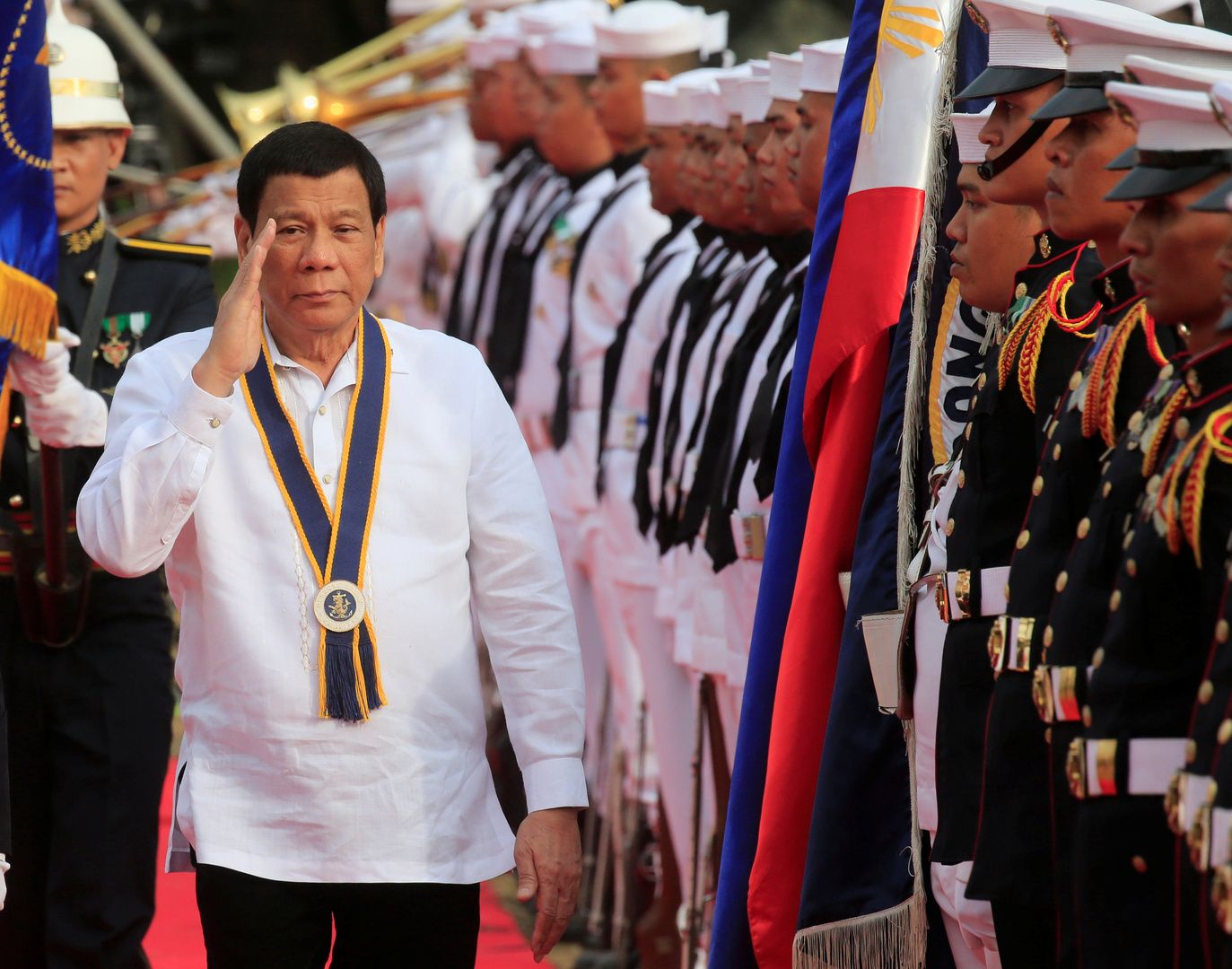
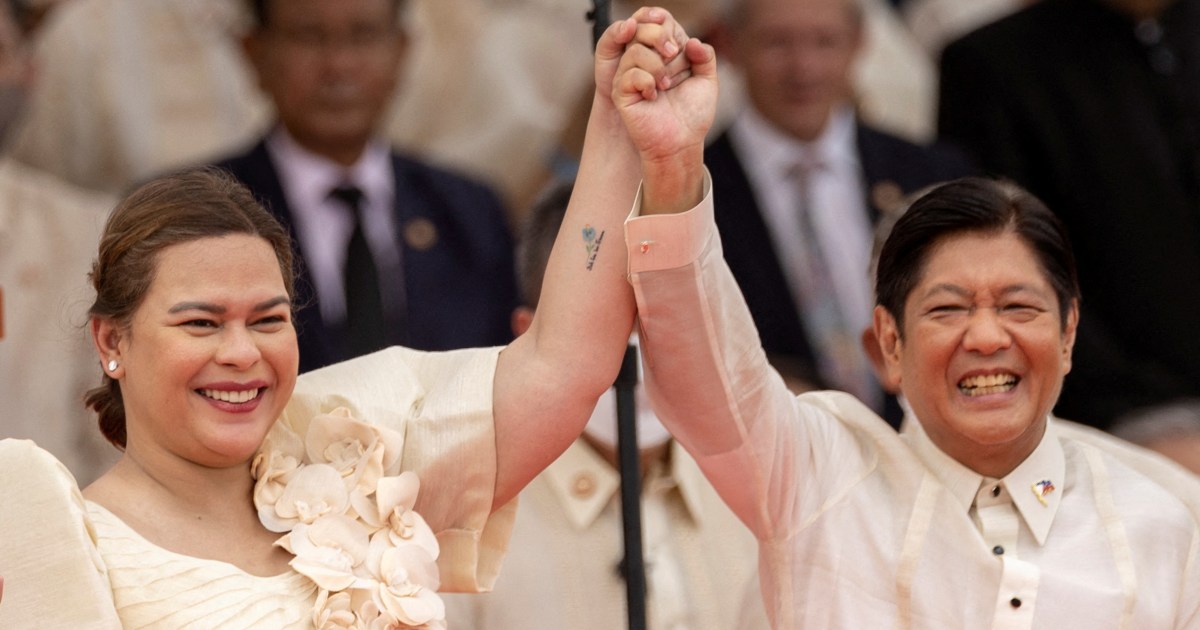
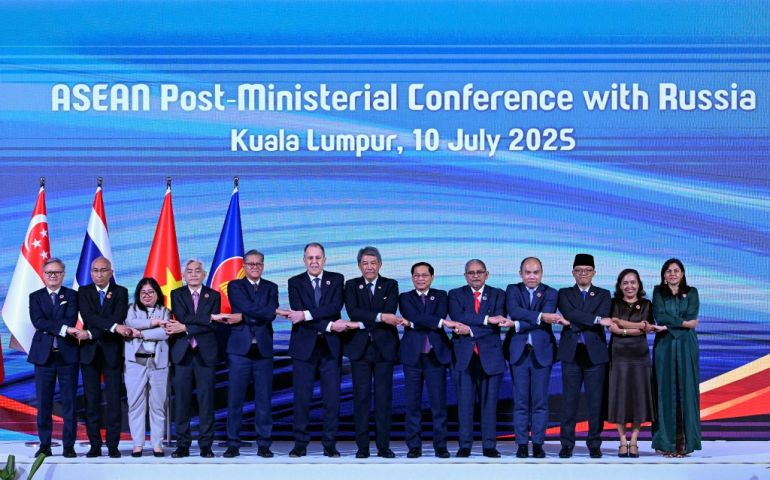
![Family photo of the attendees of the Association of Southeast Asian Nations (ASEAN) Post-Ministerial Conference with Russia during the 58th ASEAN Foreign Ministers meeting and related meetings at the Convention Centre in Kuala Lumpur on July 10, 2025. [Mohd Rasfan/ AFP]](https://www.occasionaldigest.com/wp-content/uploads/2025/07/000_66CV49R-1752135088.jpg)
